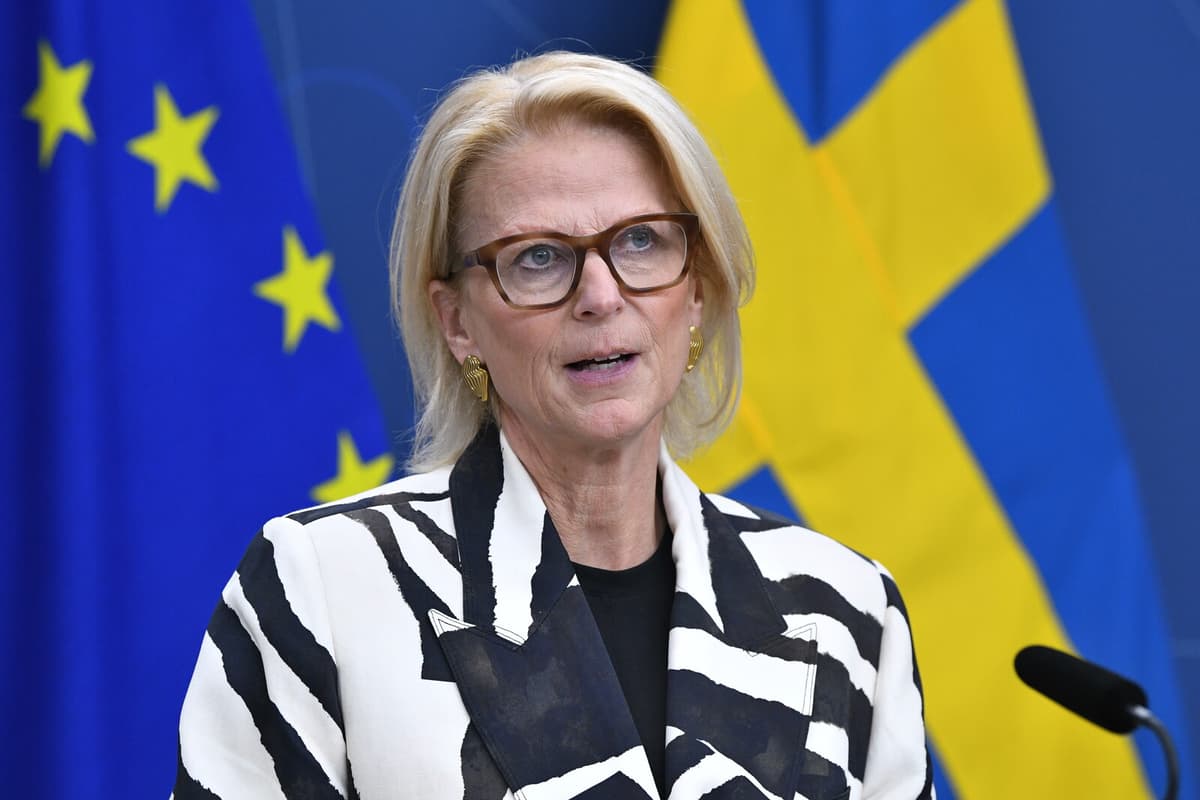On Monday, Finance Minister Elisabeth Svantesson (M) will present the government's budget. It is already clear that it involves 80 billion kronor in new initiatives, a way to "break the low-conjuncture" has Finance Minister Elisabeth Svantesson motivated the initiatives.
However, criticism from several quarters is sharp against some of the initiatives.
I must say that it is quite obvious sweets that should fit in line with the election campaign. I do not think it is particularly good, says John Hassler, professor of economics at Stockholm University.
Disputed initiative
He is talking about one of the most disputed initiatives, a temporary reduction of food VAT from 12 to 6 percent during the period April 1, 2026 - December 31, 2027, something that will cost 16 and 21 billion for 2026 and 2027.
Two arguments against VAT reduction, apart from that it is very expensive: it distorts consumption without being particularly accurate distribution policy. The second is that as it is now being implemented, there is a clear risk that it will come at the wrong time in terms of the economic cycle.
Swedbank's chief economist Mattias Persson is on the same line:
It is very inefficient and I do not think it will generate very much extra growth or get consumption going. Moreover, we have to wait until April to see any effect at all.
Small boost
According to Swedbank's calculations, the budget initiatives will contribute to a GDP boost of between 0.2-0.7 percent next year.
So it's not super-expansive or any "game changer" for monetary policy, thinks Mattias Persson.
What could you do differently then?
It would have been much better to have more reduced tax on work and pension than food VAT. This is an own goal.
John Hassler, in turn, highlights the reduced electricity tax as something that is actually good in the budget, but an initiative that could have been extended.
It is good and I think you should have done more. It is structurally wrong to have electricity tax when we want to electrify society. The electricity tax, I would say, is particularly harmful to the economy and it is good that it is reduced, but it is not that much.
Tobias Österberg/TT
Facts: Autumn budget
TT
Here are some of the largest initiatives that have been presented:
The defense budget is increased by 26.6 billion kronor compared to 2025.
Food VAT is reduced from 12 to 6 percent during the period April 1, 2026 - December 31, 2027. The cost is estimated at 16 billion in 2026 and 21 billion in 2027.
Tax cuts, including reduced electricity tax. A strengthened job tax deduction, increased basic deduction for pensioners, and lower fees for preschool and leisure activities. The reforms amount to over 30 billion kronor.
The increase in housing allowance. The increase means up to 800 kronor extra per month for families with one child and 1,000 kronor for families with two or more children.
The social benefit is tightened. Will apply from January 1, 2027.






